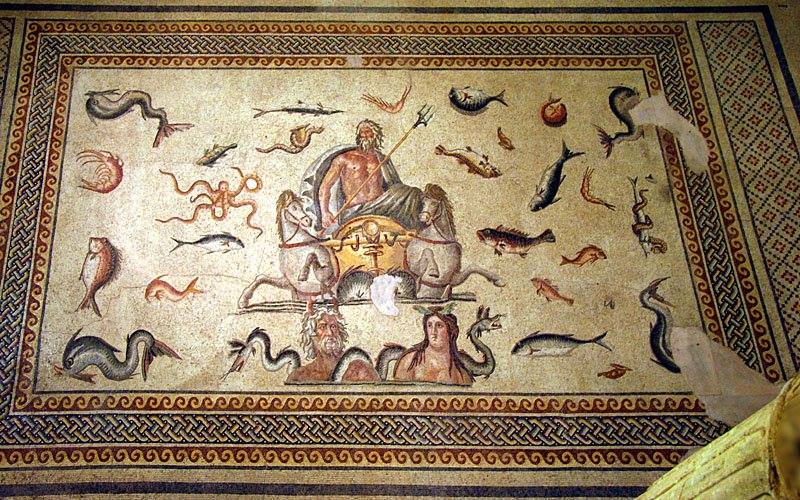 |
| Heracles and the Cercopes |
One of the many pleasures of the Metamorphoses comes in using the book as a travelogue - a sort of Rough Guide to the Lands of Myth and Fable.
In the speedy summary of Aeneas's wanderings in book 14 we move from Sicily to Cumae, via islands off the coast of Naples. One of them, Pithecusae, we now call Ischia, and Ovid is pleased to tell us in a philological note how it was populated by deceitful humans who were turned into monkey mimics:
Pithecusae, on its barren hill, named after its inhabitants, from pithecium, a little ape. For the father of the gods, Jupiter, hating the lying and deceit of the Cercopes, and the crimes of that treacherous people, changed them into disgraceful creatures, so that, though unlike men, they should seem like them. He contracted their limbs, turned up and blunted their noses, and furrowed their faces with the wrinkles of old age. Their bodies completely covered by yellow hair, he sent them, as monkeys, to this place, but not before he had robbed them of the power of speech, and those tongues born for dreadful deceit, leaving them only the power to complain in raucous shrieks. (Kline)The Cercopes are the stuff of various stories, including the fine tale of how they annoyed Heracles, and what he did to them, and how, hanging upside down on his shoulder pole and beholding the far side of the hero's posterior, their captivity ended in a liberating explosion of laughter. The above image is of that tale, and is a metope found at Paestum, one of the ancient cities of Magna Graecia, dating back to the 7th century BC.
The tale reminds us that much of what is now southern Italy was essentially an extension of the Greek world for quite a bit longer than the US has been a nation. As his poem passes through the region of Campania -- the Romans called it campania felix, "fertile (fortunate, happy) countryside," Ovid is doubtless mindful of its history, dutifully composed by Livy, including the Samnite Wars that led to eventual Roman rule.
Whether or not the Romans came from Troy, it is the case that southern Italy was Italian before it was Greek, and the eventual hegemony of Rome over Italy was a reversal and a return. We might bear this in mind as we look at the relationship of Aeneas's journey to that of Odysseus which brought both of them into touch with Polyphemus, Scylla, Aeolus, Sirens, and Circe.

No comments:
Post a Comment